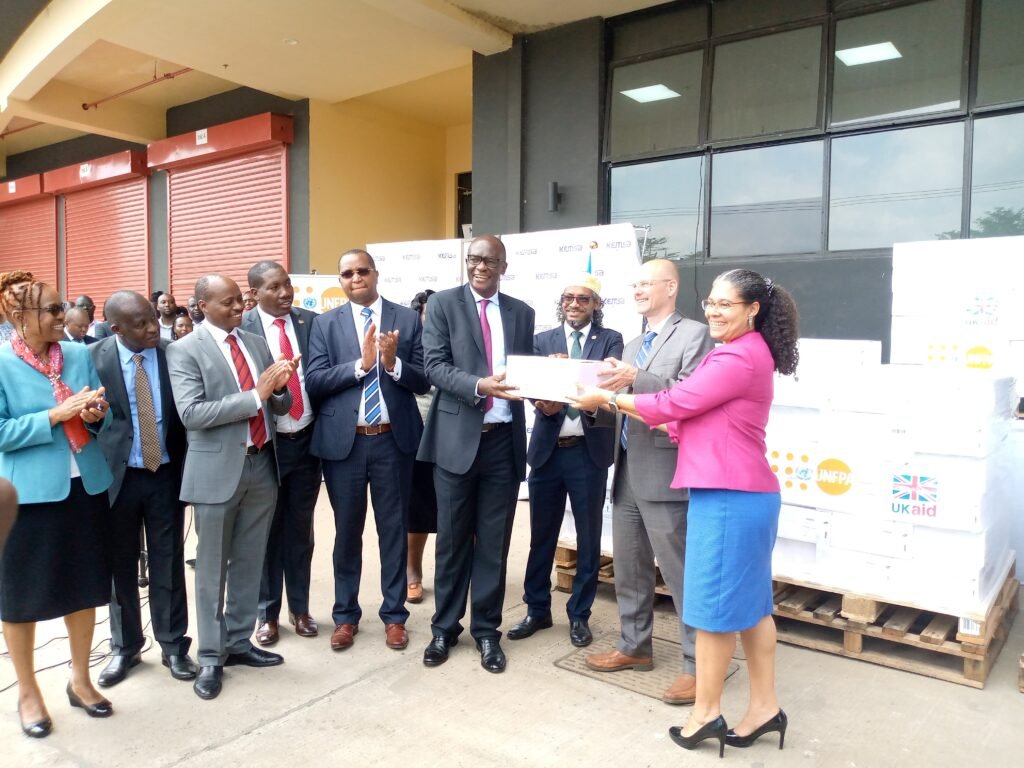By Barbara Owano
Kenya has received 450,000 doses of self-injectable contraceptives from the United Kingdom in an effort to improve family planning for sexually active women.
-
Sale!
Download Nairobi Law Monthly Magazine July 2024 Edition
Downloads Original price was: KShs200.00.KShs100.00Current price is: KShs100.00.
The Depot Medroxyprogesterone Acetate (DMPA-SC) contraceptives procured by United Nations Population Fund (UNFPA) with over Sh57 million (£348,000) funding from the UK government will be distributed to health facilities across the country by the Ministry of Health.
According to the UN agency, DMPA-SC is a user-friendly injectable contraceptive that can be administered by trained individuals, including community health workers and women themselves.
The Acting Director General of Health Dr.Patrick Okoth while receiving supplies at the Kenya Medical Supplies Authority warehouse in Nairobi on Thursday, talked about the importance of incorporating contraception into the reproductive health landscape.
“The integration of DMPA-SC self-injection into Kenya’s reproductive health landscape is part of broader reproductive health self-care initiatives aimed at improving service delivery. These will support the Government’s efforts to increase access to family planning in line with global trends toward self-care interventions,” Director General of Health said.
Kenya has made significant progress in promoting access to family planning, with the modern contraceptive prevalence rate rising to 57% in 2022, up from 53% in 2014. During the same period, the unmet need for family planning was reduced from 18% to 14%.
However, despite this progress, barriers such as the high financial cost of access and uncertainty over supply hinder efforts to meet the demand for family planning.
The Deputy Development Director at the British High Commission, Eduarda Mendonca-Gray, said that sexual and reproductive health and rights is a key priority for the UK.
“Since 2010 we have been supporting family planning efforts in Kenya and we remain committed to working collaboratively. We will continue working with the Health Ministry to empower women to plan for their lives and future, and to decide when to have children by choice not by chance,” she said.
The contraceptives are expected to benefit over 400,000 women of reproductive age, contributing to the prevention of 42,750 unintended pregnancies and 122 maternal death.


